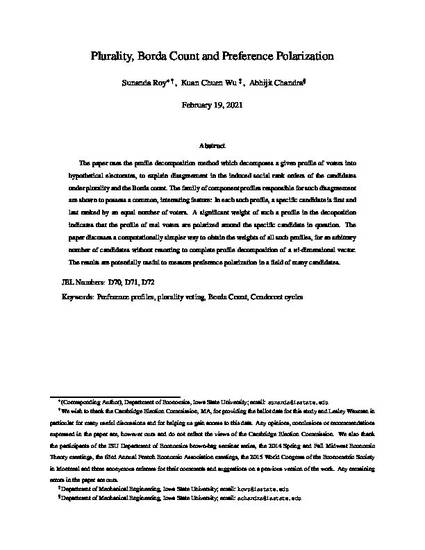
The paper uses the profile decomposition method which decomposes a
given profile of voters into hypothetical electorates, to explain
disagreement in the induced social rank orders of the candidates under
plurality and the Borda count. The family of component profiles responsible
for such disagreement are shown to possess a common, interesting feature: In
each such profile, a specific candidate is first and last ranked by an equal
number of voters. A significant weight of such a profile in the decomposition
indicates that the profile of real voters are polarized around the specific
candidate in question. The paper discusses a computationally simpler way to
obtain the weights of all such profiles, for an arbitrary number of
candidates without resorting to complete profile decomposition of a
n!-dimensional vector. The results are potentially useful to measure
preference polarization in a field of many candidates.
Original Release Date: February 19, 2021
Available at: http://works.bepress.com/sunanda-roy/7/